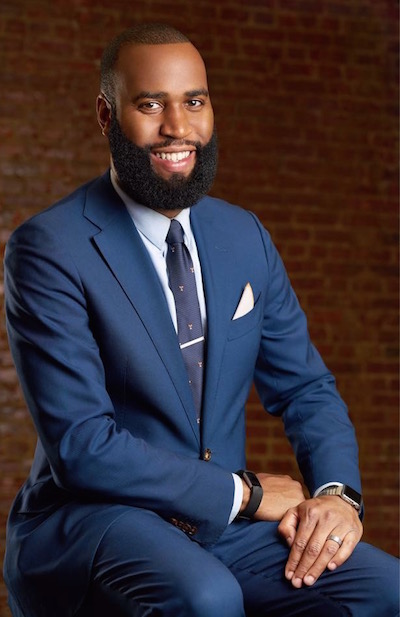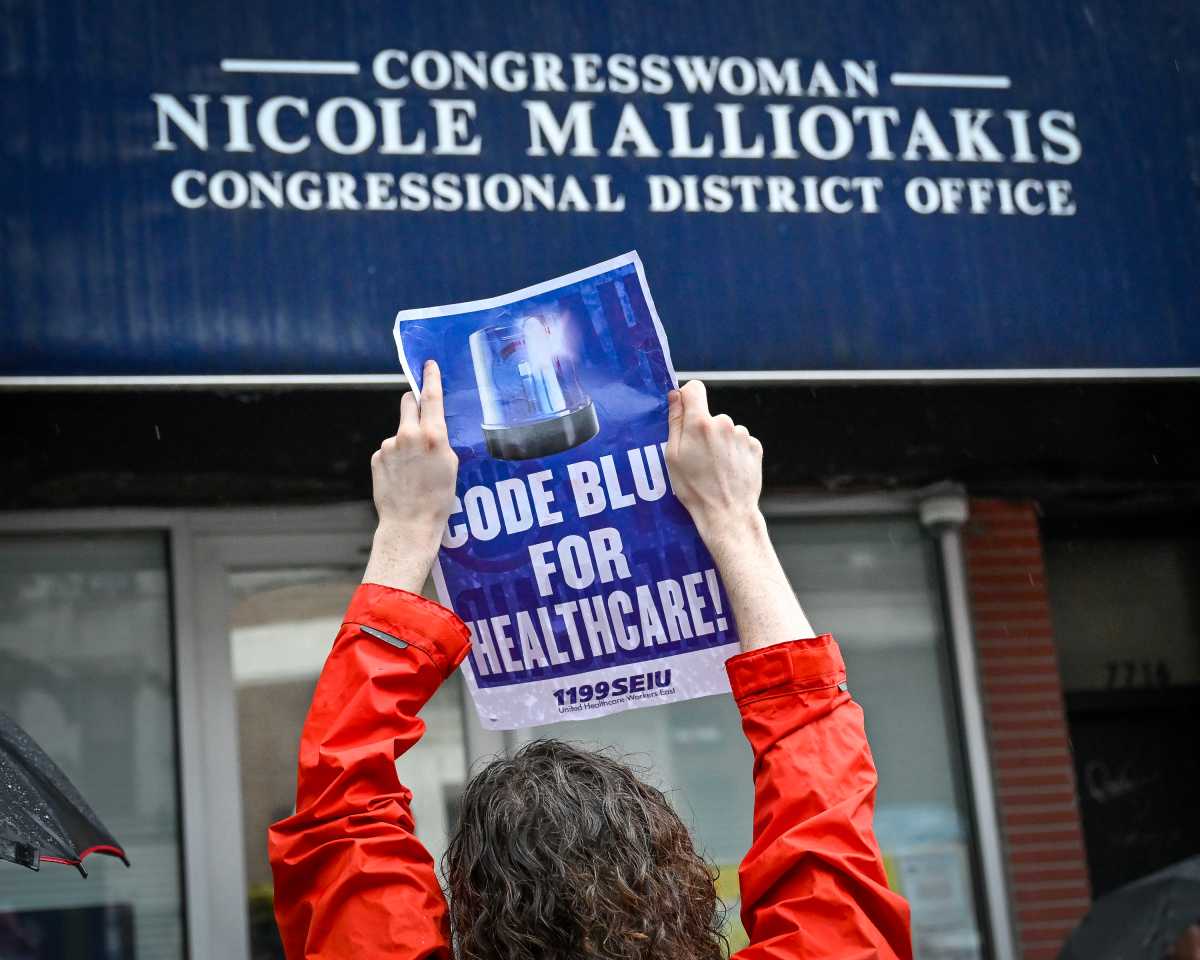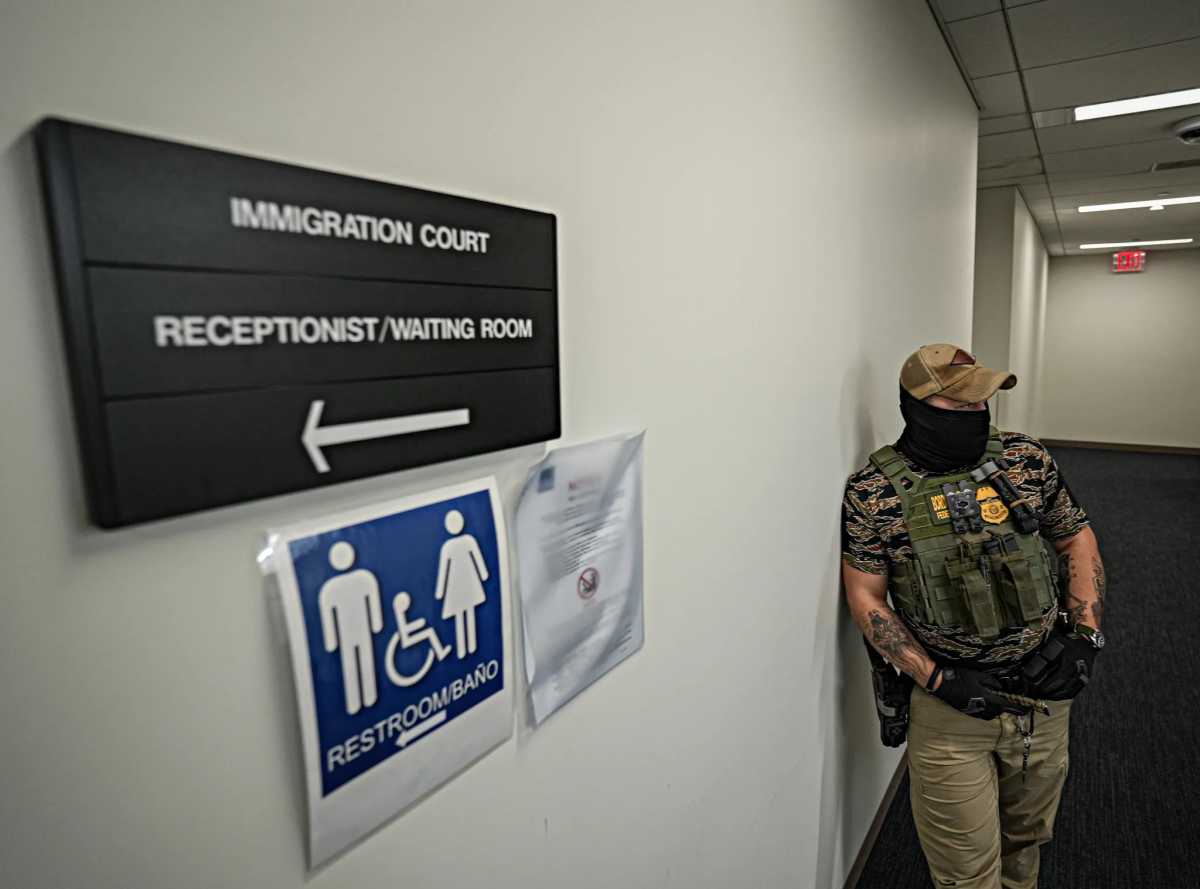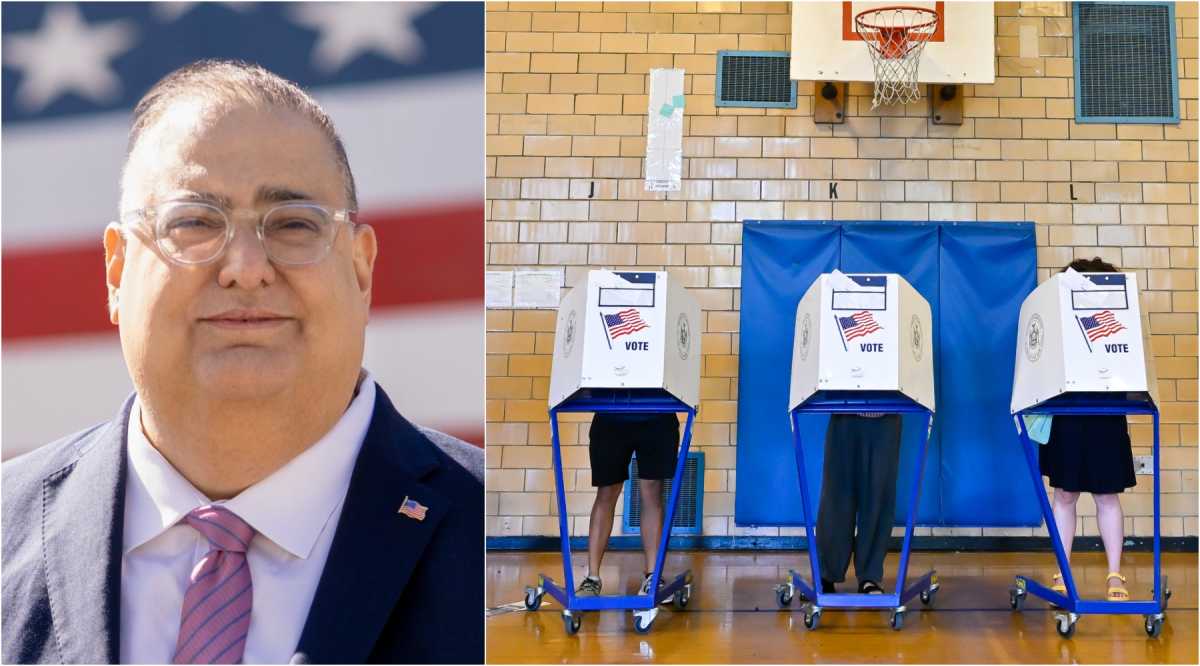Brian Cunningham says that most places in the 40th City Council district stir up memories for him. From the block on Linden Boulevard that his mother chose when arriving to Brooklyn from Jamaica in 1975, to the building around the corner where he first kissed his future wife, Stephanie, he says the neighborhood is full of nostalgia.
And it is this feel for the streets where he went from childhood to manhood, along with a deep commitment for public service, that led him to run for the city council seat in the Sept. 12 Democratic primary covering Prospect Lefferts Gardens, Flatbush, East Flatbush and Ditmas Park.
“Everywhere I go in this district, I see someone I know, someplace I remember,” said Cunningham, sipping a beer at the Farm on Adderly, 1108 Cortelyou Road. “I see my fingerprints everywhere.”
But Cunningham also sees something else in the streets of his district: displacement. He says that Brooklyn is at a tipping point, and that unless changes are made, the borough his future children inhabit will be a different one than the Brooklyn he grew up in.

“We are at that moment in this district, in this borough, in this city,” said Cunningham. “If we don’t begin to elect people who understand the communities, understand how the process works inside, and have a vision of what they seek for the community, we’re heading in the wrong direction.”
Cunningham argues that all issues the district faces are connected. He says rising rents mean residents have less money to spend on healthy food options, leading to health problems in the community. Less disposable income in the district means local businesses suffer and cannot hire young people, who are then more likely to experience negative interactions with law enforcement.
“The issues are actually married, they’re not divorced, and when you begin to connect the tissues to the bones to the skin, you realize we have a holistic problem in the community,” said Cunningham. “And it needs addressing immediately.”
Cunningham says that at the crux of the issues is affordability in the neighborhood. He says that rents, residential and commercial, have gone up 80 percent in the past ten years in the district.
He advocates a “50-50” model for development, meaning 50 percent affordable housing and 50 percent market-rate housing. He says 20 percent of units should go to low-income residents below the poverty line. Another 30 percent would go to people earning the Community Median Income (CMI). Cunningham says the CMI should be used, rather than the current Average Median Income (AMI), which he says is less useful as it includes more affluent counties and all five boroughs.
The remaining 50 percent of housing units could be rented or sold at market rates, which Cunningham says would pay for the development and provide a needed mixture of incomes.
“The other thing that’s beautiful about this vision is it creates a model of holistic living, where we’re not concentrating poverty,” said Cunningham. “I think that by having that kind of building makeup, it helps energize the thoroughfares and it helps provide the kind of affordability that we need.”
If elected, Cunningham plans to push forward a series of bold policy plans, such as a “medicare for all” package in New York City, based on San Francisco’s model.
“In the city of New York, our budget must reflect our values,” said Cunningham. “And if healthy New Yorkers are a value for us, we have to put our money where our mouth is.”
He argues that the city must also do more to protect its senior citizens, providing free metro cards, affordable senior housing close to hospitals, and even freezing property taxes for seniors in the city.
He also hopes to ensure the introduction of Beacon programs to all local schools. He says this could give kids somewhere beneficial to go while their parents are still working or commuting home.
“Think about all the positive things that can happen between the hours of 3 and 9 p.m.,” said Cunningham. “Young people can get homework done, they can learn music, art, they can have extracurricular activities like basketball, they can learn coding.”
Cunningham says that personal experience as a resident of the district, professional experience on the city, state, and federal level, and tangible policy solutions make him the best candidate for city council.
He admits that challenging an incumbent with 10 years of name recognition is hard work, and that making the decision to campaign full-time was a difficult one for him and his wife, who he greatly thanked for the for the sacrifices she has made so he could run for public office.
“I literally spent my entire adult life thinking about this and working towards this, because it matters,” said Cunningham. “I don’t eat much, I don’t sleep much, and I worry a lot. Because it’s such a tight race that I don’t want the wrong person to be elected. And the wrong person is anyone but me.”










